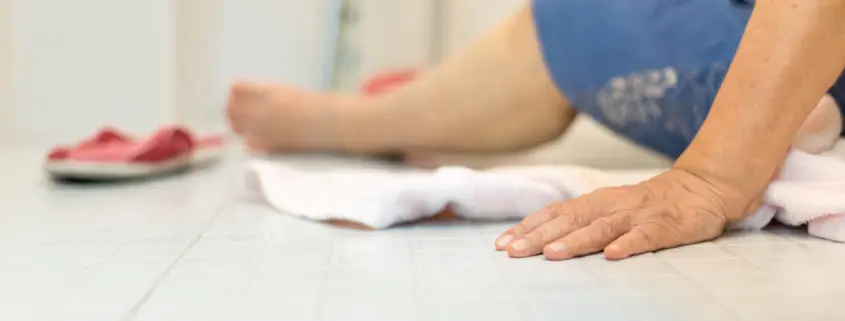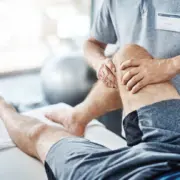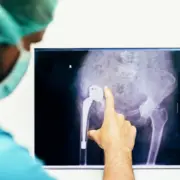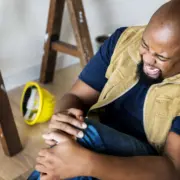Preventing Falls at Home After Orthopedic Surgery
Thanks to advances in modern surgical techniques, many injuries today can be treated on an outpatient basis. Someone who undergoes a minor knee repair surgery, for example, may be sent home a few hours following the procedure.
While recovery at home is often far more comfortable than recovering in a hospital, it holds far more dangers for a patient – with the most dangerous area of the home being the bathroom, kitchen, and laundry room. A patient’s home often lacks the benefit of professional medical supervision, with patients having to care for themselves and navigate around the house using crutches or a walker. This means dodging furniture, household items, kid’s toys, and possibly even rambunctious pets.
In contrast, a hospital room typically contains minimal furniture to permit easy access for medical professionals and reduce the chance of tripping over things. Someone is available with the push of a button to bring a bedpan or assist a patient to the bathroom. Meals are delivered and served in bed so the chances of suffering a fall are minimal.
Why Post-Op Falls are Dangerous
Even a relatively minor fall can greatly complicate matters for someone recovering from surgery. The repaired body part faces an increased risk of re-injury, tearing out of the stitches or other possible maladies. A person who falls may twist their bodies in an attempt to protect the treated area, potentially causing a secondary injury elsewhere.
Falling and being unable to get up is a real concern. No one wants to picture a loved one, home alone after surgery, falling to the floor, unable to get up or reach a phone to call for help. It is a horrific thought, but it does happen.
In addition, special care should be taken for seniors while recovering from surgery, as many will need someone to stay with them during recovery, or at least receive daily in-home visits from a nurse or therapist. Older adults are far more susceptible to falls and are more likely to suffer injuries from a fall.
How to Avoid Hazards in the Home
If you are anticipating recovering from surgery at home, there are things you can do to prepare to minimize the likelihood of a fall after your procedure. This preparation includes:
- Clear areas that you will need to navigate by removing things like floor runners, loose wires or cords, and tables or household items in walkways.
- Consider boarding pets for a few days to avoid the risk of tripping over them.
- Set up a small cooler with snacks or refreshments for the day next to the bed and relocate phones so they are close by.
- Ensure any rugs have nonslip backing on them or, even better, remove them.
- Install handrails in the bathroom, especially if the patient is elderly or recovery is expected to take weeks or months.
- To avoid the risks that come with having to climb stairs, relocate your bed to the first floor (if in a multilevel home) with access to a nearby bathroom.
- Ensure house slippers have no-skid soles.
- Arrange for regular visits by family or friends. Try to make your trips to the bathroom while someone is with you in the home and available to assist if needed. Nearly half of all falls recorded after surgery occur in the bathroom. Condensation or splashed water exponentially enhances the chances of a slip and fall in the bathroom, so be careful.
- Be aware of the possibility some medicines can cause dizziness, which can increase the likelihood of a fall, no matter how otherwise able you feel you are.
The kitchen is the second most dangerous room in the house because water figures prominently here as well, with spills and splashes from the sink or dishwasher creating hazards that can cause a slip and fall. Plus, the kitchen is home to many sharp, pointy objects designed to rend flesh from bone.
If you’re planning an at-home recovery, or even just thinking about adding new exercise to your routine at home, consult a medical professional first to learn how to avoid the particular hazard of falls. Call the team of professionals at the Colorado Center for Orthopaedic Excellence at (719) 623-1050 or request a consultation using the convenient online form to find out for yourself why the COE team is the best of the best.







